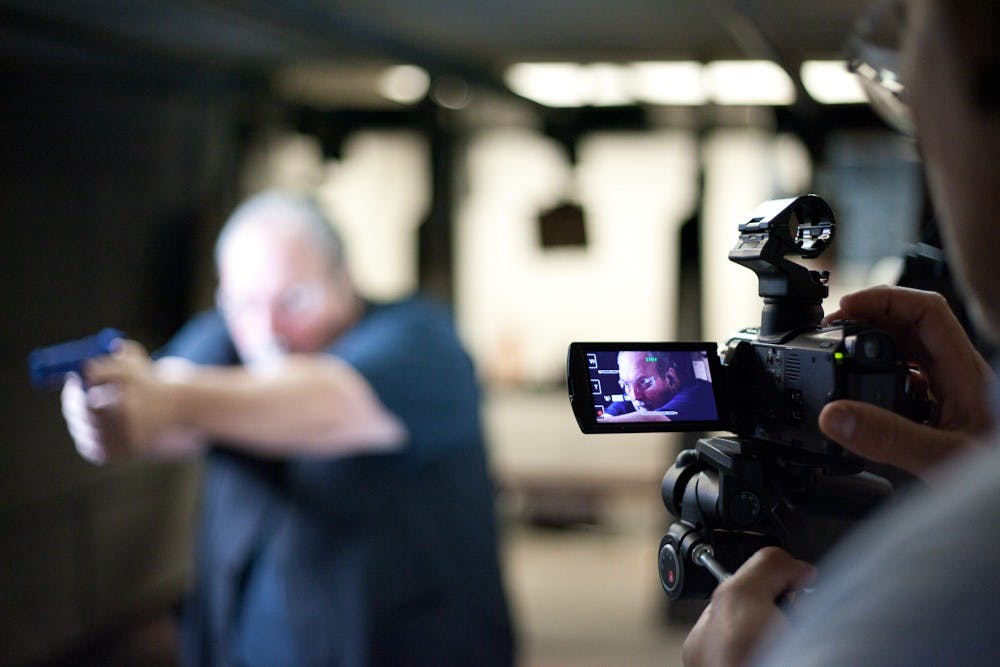What does trauma feel like? What does safety feel like? These are the questions Athens-based artist Jennifer Nelson posed during her artist residency at the ASU. Friday night, I went to the artist’s reception at the ASU Art Museum to hear about the conversations, activities, and gathering that have taken place to create Nelson’s exhibition “Securing a free state.”
Because of the controversial gun laws in Arizona, Nelson used the Second Amendment of the U.S. Constitutution (“the right to bear arms”) as the premise of her exhibition to examine the question “How can a person or a collective be securely free?”
In order to realize this project, Nelson undertook trips to shooting ranges, a sniper training school, and a prosthetics design facility. She also reached out to the public and worked directly with amputees, martial artists trained in weaponry, trauma counselors, and rehabilitation specialists to find the various interpretations of safety.
When I walked into the gallery, I saw that the exhibition is divided into three spaces; each designed to match its purpose. During her closing remarks, Nelson explained that the first is the “martial area,” which is open and lit with a harsher blue light. In the middle is the “therapeutic space” painted with a lavender-gray accent wall and decorated with neutral carpet, pillows, and a rocking chair to create a cozy environment. Nelson described that the “negotiation space” is meant to address problem and action. Is this person safe? What signal does he give? Am I wrong?
Later, I saw a piece on the front wall of a bulletproof vest showing how the vest takes the impact of the bullet over the entire weave to prevent the trauma from affecting one place. To connect it to what Nelson had talked about, I thought about how people try to restore their sense of wholeness, freedom, and security once it’s been violated.
When I got the chance to speak to Nelson towards the end of the evening, I asked about how her experience as an artist in Greece has shaped her style. “The ecology of the land is amazing,” Nelson explained. “That connection to land has changed my idea of collective aesthetics.” The relationship to environment is also seen in “Securing a Free State” as Nelson filmed people in places where they felt was a safe space in the landscape.
When I asked if her views towards gun ownership has been changed or solidified, she answered that she’s only become more entrenched in the complex perspectives. Security is just as much, if not more, emotional than physical. How do we defend both?
[gallery link="file" order="DESC"]
If you have any suggestions for what I should check out next, email me at Mary.G.Richardson@asu.edu or follow me on Twitter at MG_Richardson.




